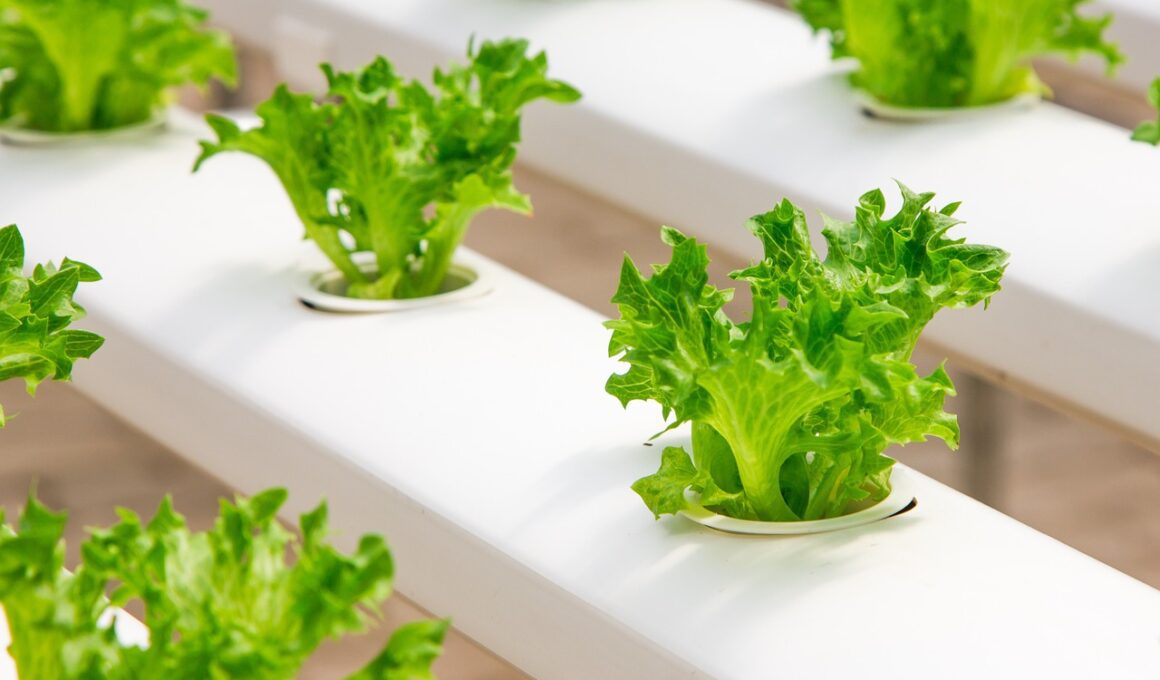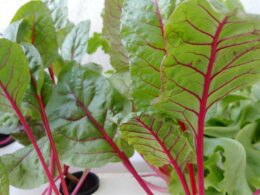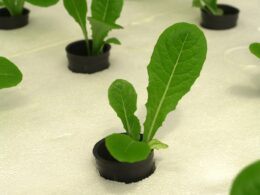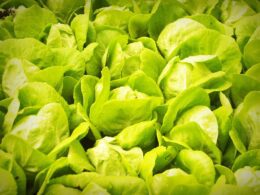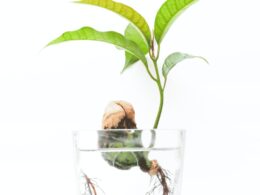Are you interested in hydroponic gardening, but concerned about the potential risks involved? Perhaps you’re worried about the use of chemical fertilizers and pesticides, or the potential for contamination in your water supply.
The good news is that you can grow hydroponics with just water, and eliminate the need for potentially harmful additives.
Hydroponics is a method of growing plants without soil, using nutrient-rich water instead. This technique has several advantages over traditional gardening, including faster growth, higher yields, and greater control over growing conditions.
However, many hydroponic gardeners still use chemical fertilizers and other additives to boost plant growth and ward off pests. If you’re looking for a safer and more natural way to grow your own hydroponic garden, read on to learn more about the benefits of using just water.
Understanding Hydroponics
Comprehending hydroponics entails grasping the concept of cultivating plants without using soil. Hydroponic systems rely on water and nutrient solutions to nourish the plants. These systems have been around since ancient times, but modern advances have made hydroponics more efficient and accessible to home gardeners.
In hydroponic systems, plant growth is not reliant on soil. Instead, plants are grown in nutrient-rich water solutions that provide essential minerals and vitamins. These solutions can be customized to the specific needs of each plant, resulting in faster and healthier growth.
Hydroponics also eliminates the risk of soil-borne diseases and pests, making it a safer and more sustainable way to grow plants.
Overall, understanding hydroponics is essential for anyone interested in sustainable gardening. With the ability to grow plants without soil, hydroponic systems offer a safe and efficient way to cultivate plants, regardless of location or climate. By harnessing the power of water and nutrients, hydroponic systems provide an innovative approach to gardening that’s both eco-friendly and effective.
The Importance of Nutrients
Without proper nutrients, hydroponic plants will struggle to thrive and produce a bountiful harvest. While it’s true that hydroponics allows you to grow plants with just water, it’s important to understand that water alone won’t provide your plants with the necessary nutrients they need to grow and produce.
Nutrient solutions are a crucial component of hydroponic gardening, as they provide plants with the essential minerals and vitamins they need to thrive. Without proper nutrient solutions, your hydroponic plants can suffer from nutrient deficiency, which can negatively impact their growth and overall health.
Depending on the type of plant you’re growing, you’ll need to tailor your nutrient solution to provide the specific nutrients that plant needs. For example, leafy greens like lettuce require higher levels of nitrogen, while fruit-bearing plants like tomatoes require more potassium and phosphorus.
Incorporating nutrient solutions into your hydroponic gardening routine may seem daunting, but it’s a critical step to ensure your plants grow healthy and strong. By providing your plants with the necessary nutrients, you’ll not only increase their yield but also improve their flavor and overall quality.
Don’t forget to regularly monitor your plants for signs of nutrient deficiency and adjust your nutrient solution accordingly to achieve the best possible results.
Is Hydroponic Lettuce Grown Using Only Water?
Hydroponic lettuce has gained popularity due to its efficient use of resources. Contrary to conventional farming methods, hydroponic cultivation eliminates the need for soil. Instead, lettuce varieties for hydroponics are grown using nutrient-rich water solutions. This method promotes faster growth, higher yields, and reduced water consumption, making it an ideal choice for sustainable agriculture.
Experimenting with Hydroponics and Water
Get ready to dive into the exciting world of hydroponics and water experimentation! While hydroponics typically requires a nutrient solution to support plant growth, it’s possible to experiment with just water.
However, the quality of the water used in the hydroponic system will greatly affect plant growth rates. When experimenting with hydroponics and water, it’s important to consider the quality of the water being used.
Tap water may contain chlorine, chloramine, or other chemicals that can harm plant growth. It’s recommended to use filtered or distilled water to avoid any potential issues. Additionally, the pH level of the water should be monitored and adjusted to ensure optimal plant growth.
While growing hydroponics with just water may seem like a cost-effective option, it’s important to note that plant growth rates may be slower without the added nutrients found in a nutrient solution. However, experimenting with hydroponics and water can be a fun and educational experience, allowing you to observe the effects of different water qualities on plant growth.
So, grab your water and get ready to dive into the exciting world of hydroponics!
Best Practices for Hydroponic Gardening
When practicing hydroponic gardening, it’s essential to follow the best practices to ensure optimal plant growth and health. One of the critical factors to consider is the pH level of the water. Your plants’ roots won’t be able to absorb the necessary nutrients if the water is too acidic or alkaline.
Generally, the optimum pH level for hydroponic gardening is between 5.5 and 6.5. You can check the pH level of the water using a pH testing kit and adjust it accordingly using pH up or down solutions.
Another essential aspect to consider when practicing hydroponic gardening is the lighting requirements of your plants. Different plants require different levels of light, and it’s crucial to ensure that they receive enough light for optimal growth.
LED grow lights are a popular choice for hydroponic gardening as they emit the right spectrum of light for plant growth while consuming less energy than traditional grow lights. It’s also essential to ensure that the lights are placed at the correct distance from the plants as too much or too little light can harm the plants.
In conclusion, hydroponic gardening can be a fun and rewarding experience, but to ensure optimal plant growth and health, it’s crucial to follow the best practices. Maintaining the pH level of the water and providing your plants with the right amount of light are just a few of the essential practices to consider.
By following these best practices, you can enjoy a successful hydroponic garden and a bountiful harvest.
Conclusion: Can You Grow Hydroponics with Just Water?
To fully understand the potential of hydroponic gardening and achieve a successful harvest, it’s important to consider the various factors discussed in this article. While it’s possible to grow hydroponics with just water, there are benefits and limitations to this method.
Here are some key takeaways to keep in mind:
- Benefits of hydroponic farming include faster growth rates, higher yields, and the ability to grow crops year-round.
- Limitations of hydroponic farming include the need for precise nutrient and pH levels, as well as the upfront cost of setting up the system.
- It’s important to choose the right type of hydroponic system for your needs, whether it’s a deep water culture, nutrient film technique, or other method.
When it comes to growing hydroponics with just water, it’s possible to do so with a few key considerations. First, make sure you have the right type of water, whether it’s distilled, reverse osmosis, or another purified source. Second, ensure you have the right nutrients for your plants to thrive. Finally, monitor your pH levels regularly to ensure they stay in the optimal range.
In conclusion, while it’s possible to grow hydroponics with just water, it’s important to understand the benefits and limitations of this method. By following best practices and considering the various factors discussed in this article, you can achieve a successful harvest and enjoy the benefits of hydroponic farming.
Frequently Asked Questions
How much water is needed for a hydroponic system?
To ensure the success of your hydroponic system, it’s important to consider water quality and nutrient ratios. The amount of water needed for a hydroponic system can vary depending on the size and type of system you have. However, it’s generally recommended to change the water every two to three weeks.
When it comes to water quality, it’s crucial to use clean, sterile water to prevent the growth of harmful bacteria and fungi. Additionally, nutrient ratios should be carefully balanced to ensure optimal plant growth and health.
By paying attention to these factors, you can create a thriving hydroponic system that produces healthy and abundant crops.
What types of plants are best suited for hydroponic gardening?
Looking to start hydroponic gardening? Well, there are many benefits of hydroponic gardening, including faster growth rates and higher yields compared to traditional soil gardening. And if you have limited space, don’t worry – there are top hydroponic systems for small spaces.
When it comes to choosing which plants are best suited for hydroponic gardening, leafy greens like lettuce and herbs like basil are great options. These plants have shallow roots and can thrive in a water-based environment. Plus, with hydroponics, you don’t need to worry about pests or soil-borne diseases.
So why not give hydroponic gardening a try? You might be surprised at just how easy and rewarding it can be.
Can tap water be used in a hydroponic system?
To maintain a healthy and thriving hydroponic system, it’s important to consider the quality of the water being used. Tap water can be used in a hydroponic system, but it may contain chemicals and minerals that can harm your plants.
To ensure the best results, it’s recommended to use purified water or alternative solutions like rainwater or reverse osmosis water. Water quality is crucial for the success of your hydroponic garden, so take the necessary steps to provide your plants with the cleanest water possible.
How do you prevent algae growth in a hydroponic system?
To prevent algae growth in your hydroponic setup, there are a few things you can do. First, make sure your nutrient solution is properly balanced and not over-fertilized, as excess nutrients can promote algae growth.
You can also limit light exposure by covering your reservoir or using a dark-colored container. Additionally, regularly cleaning your system, including your grow trays and any other surfaces, can help prevent algae buildup.
By taking these steps, you can ensure that your hydroponic system remains free of algae, which can help your plants grow healthy and strong.
Is it necessary to adjust pH levels in a hydroponic system?
To ensure optimal plant growth in a hydroponic system, it’s necessary to adjust pH levels. pH is a measure of acidity or alkalinity and affects the availability of nutrients to plants.
Most plants grow best in a pH range of 5.5 to 6.5, but this can vary depending on the specific plant being grown. pH adjustment techniques include adding pH up or pH down solutions to the nutrient solution.
It’s important to monitor pH levels regularly and adjust as needed to prevent negative effects on plant growth. If the pH is too high or too low, plants may not be able to absorb certain nutrients, leading to deficiencies and stunted growth.
By maintaining proper pH levels, you can ensure healthy and robust plants in your hydroponic system.
Conclusion
So, can you grow hydroponics with just water? The answer is no.
While water is an essential component in hydroponic gardening, it cannot serve as the only source of nutrients for plants. Nutrients such as nitrogen, phosphorus, and potassium are essential for plant growth, and without them, your hydroponic plants will not thrive.
To get the best results in hydroponic gardening, it’s essential to provide your plants with a balanced and comprehensive nutrient solution. You can experiment with different nutrient solutions and ratios to find the perfect combination for your plants. With the right nutrients, your hydroponic plants will grow faster, healthier, and produce higher yields.
So, while water is necessary, it’s not enough to grow hydroponics successfully.





